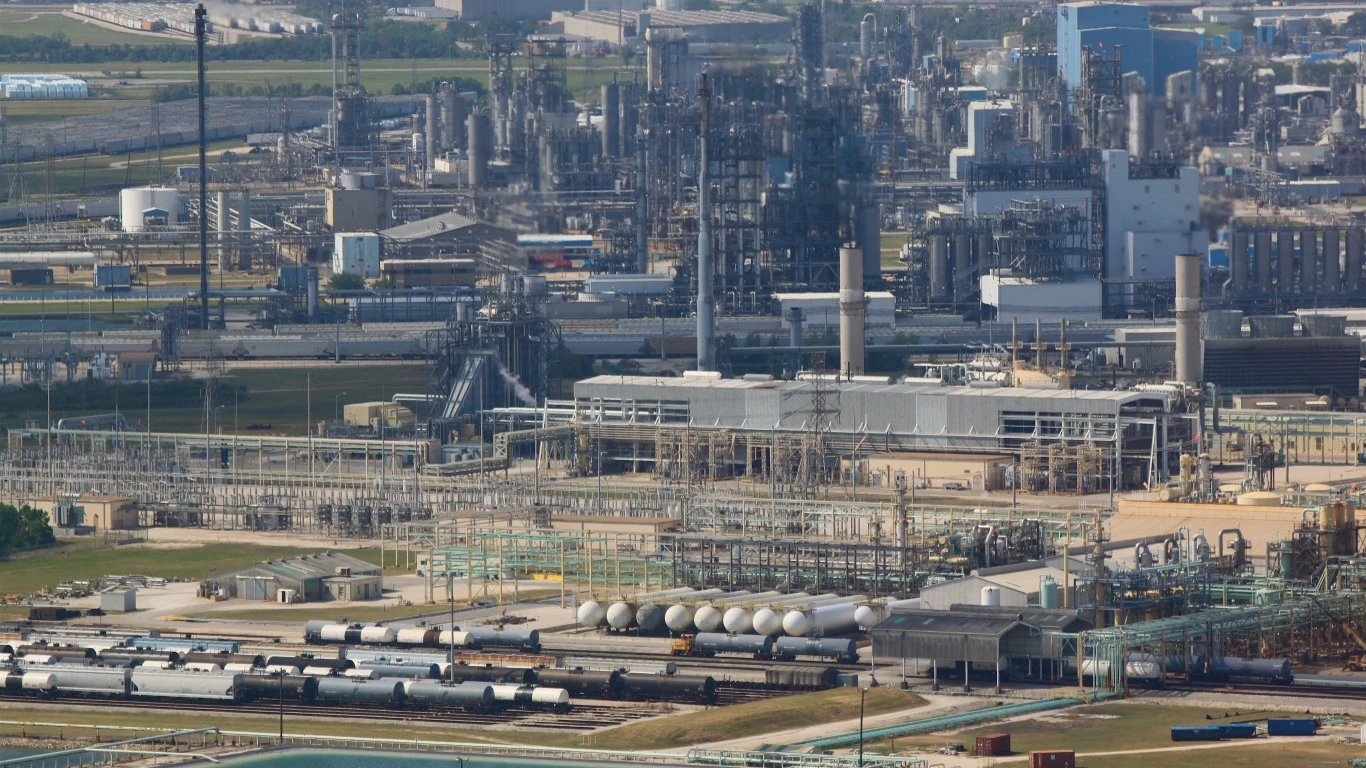
The summer of 2022 was one marked by destructive climate anomalies. Record-breaking heat waves in China, Europe, the U.K., and the U.S. jeopardized power grids, shut down transportation infrastructure, and fueled wildfires. Severe flooding led to thousands of deaths in Pakistan and mass evacuations in parts of the United States. Droughts in East Africa, Europe, and the Western U.S. depleted reservoirs and rendered key shipping routes impassable.
Weather events such as these are becoming increasingly common, and many have been linked to human-caused climate change, adding urgency to the global effort to reduce our environmental impact. (Here is a look at the worst climate-related disasters since 2010.)
In the U.S., reducing carbon emissions, preserving natural resources, and developing a clean and sustainable energy grid are key policy goals. And some states are doing more to meet these challenges than others.
24/7 Wall St. created an index of five measures: per capita carbon emissions, five-year change in total carbon emissions, energy consumption, renewable energy production, and recycling rates – or the share of recycled goods that end up in new products – to identify the states doing the most to fight climate change.
The states that rank most favorably on this list are concentrated in the Northeast and along the West Coast. Many of these states have implemented regulations that either incentivize or mandate more environmentally friendly behavior, both from industry and individuals.
In Massachusetts, for example, utility companies are required to derive a certain percentage of their electricity sales from clean energy sources – a percentage that increases by 2% annually and will hit 80% by 2050. Similarly, California Gov. Gavin Newsom recently announced an executive order mandating that all new passenger vehicles sold in the state must be zero-emission by 2035. (Here is a look at the states producing the most electricity from renewable sources.)
Meanwhile, many of the states that rank among the worst on this list are economically dependent on fossil fuel extraction and production. These states are located across the Midwest, South, and West, and include Wyoming, which accounts for about 40% of U.S. coal production, and Texas, a state that produces over 40% of all domestic petroleum.
Click here to see the worst states driving the climate crisis.





